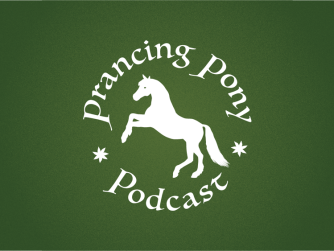The second of three episodes on The Silmarillion Chapter 19, “Of Beren and Lúthien.” Man’s best friend has a soft spot for Elf-maidens too, as Huan the hound of Valinor befriends Lúthien and assists in her quest to fetch Beren from the dungeons of Sauron. We find two sons of Fëanor off their leash, bury the bones of a beloved Elf-king, and dig up some of Tolkien’s essays and letters to determine the difference between wolves, wargs, and werewolves. As it turns out, not all dogs come from heaven.
Also, the long-anticipated explanation:

Recommended Reading:
Tolkien, J. R. R. The Silmarillion (Mariner Books, paperback) pp. 170-179, “Of Beren and Lúthien”
Tolkien, J. R. R. (Christopher Tolkien, ed.) Beren and Lúthien (Houghton Mifflin Harcourt, hardcover)



Brilliant as usual!
About Orodreth letting the two Cs go: I really think this act of his reflects Finarfin’s choice not to take part in the kinslaying (in UT there’s a version with Galadriel actually fighting Fëanor, iirc); The house of Finarfin does not squander lives, even for revenge.
I do recall that version from UT in which Galadriel fought to defend the Teleri, as they were her mother’s people. That is an interesting thought. Orodreth doesn’t come across as a very strong or a very wise ruler, but it could be that he’s trying to make the choice his father (assuming Finarfin was his father!) would have made.
I recently found your podcast and I love it. Thank you so much for making these episodes.
I just wanted to comment on some ideas that I had while you discussed the differences between wolves, wargs, and werewolves. When you guys were discussing how the Simarillion calls the werewolves fell beasts it made me think of the Maiar that fell with Melkor (at that time) when Arda was created. Now I know Tolkien used fell to describe them as dark and terrible but what if he also meant for it to mean they fell under the power of Morgoth/Melkor like the fallen Maiar? This would work for all fell beasts and would just mean the ones who fell into the service of Morgoth and were imbued with his power.
I’d also like to touch on the spirits that the werewolves are inhabited by. I don’t think that they are Maiar spirits. I think that the werewolves are instead possessed fëar. Even the strongest of elves were no match for the Maiar spoken of in the books. I know that there are lesser Maiar but even still they seem like they would be on a higher level then then the werewolves. Also just because Carcharoth and Draugluin were intelligent and could speak doesn’t necessarily mean they needed a Maiar spirit or even a fëar bound to them to do that. Don’t Glaurung and the other dragons speak? I can’t recall ever hearing about them being corrupted spirits. They were just imbued with Morgoth’s will and made strong in that manner. I know Carcharoth was strong enough to mortally wound Huan (who was strong enough to over power Sauron) but, I feel that was caused by the madness of the silmaril burning him from the inside out.
I’d love to hear a little more on your thoughts on this subject. Thank you again guys for your amazing podcast. I’m hooked.
Thanks, Jerald! We’re glad you found us.
Tolkien himself went back and forth on the question of whether speech implied intelligence, so that one is a bit ambiguous. Working solely from within the taxonomy given to us in The Silmarillion, the werewolves’ fell spirits would seem to be Maiar; and that’s how we were thinking of it at the time. But we have revisited this question in more recent episodes and come to the idea that there are other possibilities, too. I personally have started to think that they may be the fëar of Orcs who are “countersummoned” by Morgoth after death, and turn their backs on the Halls of Mandos where they should go after death (as Elves by nature). So yes, there are a lot of possible answers to the question, and I don’t think Tolkien himself ever came up with a final explanation!